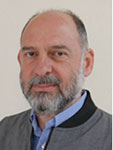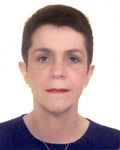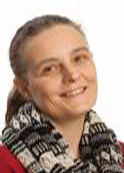Mobile Technologies are increasingly used in teaching and learning processes. In principle, their contribution to education comes from their technological characteristics. Mobile devices retain the characteristics of management of a high volume of data and information in a short time, information presentation through dynamic interactive and multiple representations, and communication. Moreover, their specific affordances, that is the actions enacted by them, are (a) ubiquity because of their portability, mobility and connectivity, (b) location awareness because of their geographical positioning recognition, and (c) environmental awareness because of their imbedded sensors. These three affordances afford certain actions that may be used in teaching and learning, but it is the pedagogical use of mobile technologies that may result to learning benefits. Pedagogical reasoning, that is Pedagogical Content Knowledge, is now extended by the certain affordances of mobile technologies and configures the specific Technological Pedagogical Content Knowledge (TPCK or TPACK). The literature on mobile learning and especially on Science Education shows positive learning outcomes. Educational researchers design mobile educational software applications, use all kinds of sensors, and conduct experiments remotely. Both students, as digital natives, and teachers show positive attitudes towards the use of mobile technologies. Nevertheless, in mobile learning, the TPACK framework inspired by pedagogical reasoning has to characterize educational research and practice.
 Dr. Tassos Anastassios Mikropoulos is a Professor of the Department of Primary Education and the director of the “Educational Approaches to Virtual Reality Technologies laboratory”, www.earthlab.uoi.gr at the University of Ioannina, Greece. Tassos Mikropoulos is the elected chair of the Hellenic Association of ICT in Education. His research interests are on educational technology, virtual reality and educational neuroscience. His work has been published in many referred journals and conferences with more than 1000 citations. He is a member of the editorial board and reviewer for many international journals. Professor Mikropoulos has been project director, principle investigator and consultant in numerous research & development and educational projects.
Dr. Tassos Anastassios Mikropoulos is a Professor of the Department of Primary Education and the director of the “Educational Approaches to Virtual Reality Technologies laboratory”, www.earthlab.uoi.gr at the University of Ioannina, Greece. Tassos Mikropoulos is the elected chair of the Hellenic Association of ICT in Education. His research interests are on educational technology, virtual reality and educational neuroscience. His work has been published in many referred journals and conferences with more than 1000 citations. He is a member of the editorial board and reviewer for many international journals. Professor Mikropoulos has been project director, principle investigator and consultant in numerous research & development and educational projects.
The presentation addressed the different contexts at a university due to changes in technology but keeping in mind that the goal is still the same - create, dissemintae and enhance the learning process. The tools offered by ICCT - Information, Communication and Computational Technology were discussed in three large sets. The first devoted to support learning (LMS - Learning Managements Systems) and the second to content management (IR - Institutional Repositories). An integrated solution (LMS+IR) developed and used at PUC-Rio - Pontifícia Universidade Católica do Rio de Janeiro was presented. The third group is courseware that can be created and made available with ICCT; the importance of OER - Open Educational Resources was emphasized too.
 Dr. Ana Pavani holds her Bachelor, Master and Doctoral degrees in Electrical Engineering. She has been a faculty of Pontifícia Universidade Católica do Rio de Janeiro (PUC-Rio) since 1976. Her current areas of interest are technology supported engineering education, digital libraries and courseware development.
Dr. Ana Pavani holds her Bachelor, Master and Doctoral degrees in Electrical Engineering. She has been a faculty of Pontifícia Universidade Católica do Rio de Janeiro (PUC-Rio) since 1976. Her current areas of interest are technology supported engineering education, digital libraries and courseware development.
Mobile learning is not only about supporting existing educational practices, but about inventing new ways of learning, often taking the learning out of the classroom and involving new stakeholders. Mobile learning has traditionally focused on the use of mobile devices, like smartphones and tablets. The affordances of these technologies are largely shaping the way mobile learning is currently conceived.
The emerging of Internet of Things (IoT) is calling for a critical reflection on the way we understand mobile learning: which new scenarios of mobile learning can we envision? Which challenges is IoT bringing at the forefront? Which digital skills are required by teachers and students to take full advantage of the possibilities offered by IoT?
By reflecting on the current state of the art and the affordances of IoT, we need to address these questions to revise our research agenda in order to creatively take advantage of IoT as an enabling technology for mobile learning.
 Dr. Monica Divitini is Professor of Cooperation Technologies at the Department of Computer Science, NTNU. She is the responsible of the Teseo Lab (http://teseolab.org), on the design, development, and evaluation of cooperation technologies, addressing issues connected to creativity, social interaction, and connectedness in learning. Prof. Divitini is currently NTNU unit responsible for a Eu project on the use of Ubiquitous Computing, Mobile Computing and the Internet of Things to promote Science Education (http://umi-sci-ed.eu/). She is also a member of the management team of Excited, the Norwegian NOKUT Centre for Excellence in IT education (https://www.ntnu.edu/excited), leading the project towards schools. She has more than 20 years active experience in research with focus on technology enhanced learning, cooperation technology, mobile and ubiquitous computing, user-centred design approaches.
Dr. Monica Divitini is Professor of Cooperation Technologies at the Department of Computer Science, NTNU. She is the responsible of the Teseo Lab (http://teseolab.org), on the design, development, and evaluation of cooperation technologies, addressing issues connected to creativity, social interaction, and connectedness in learning. Prof. Divitini is currently NTNU unit responsible for a Eu project on the use of Ubiquitous Computing, Mobile Computing and the Internet of Things to promote Science Education (http://umi-sci-ed.eu/). She is also a member of the management team of Excited, the Norwegian NOKUT Centre for Excellence in IT education (https://www.ntnu.edu/excited), leading the project towards schools. She has more than 20 years active experience in research with focus on technology enhanced learning, cooperation technology, mobile and ubiquitous computing, user-centred design approaches.
| 07 Jul 2017 | Submission of: (i) structured 2-page abstracts (for full papers, short papers, WiP, and posters) for the main conference and for ICBL2017 (ii) Special Session proposals |
| 21 Jul 2017 | Notification of acceptance for abstracts for the main conference and ICBL2017. Special Sessions notification and announcement |
| 17 Sep 2017 | Submission of complete papers for special sessions and the main conference and ICBL2017: Full Papers, Short Papers, WiP, Posters, Doctoral Consortium, Students' Competition |
| 06 Oct 2017 | Notification of acceptance |
| 27 Oct 2017 | Author registration deadline |
| 27 Oct 2017 | Camera-ready due |
| 30 Nov 2017 | Conference Opening |